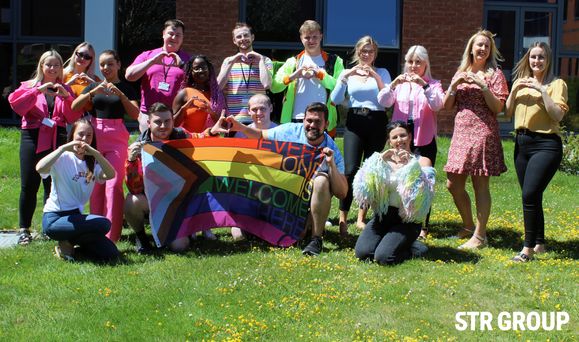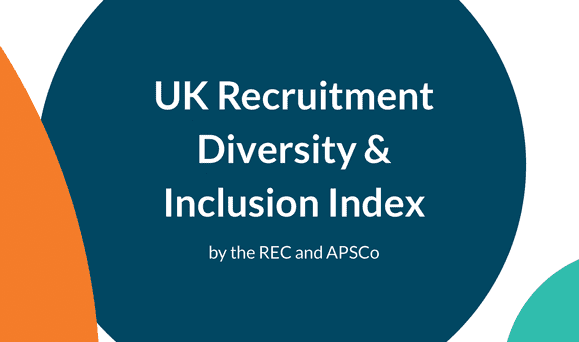
Pride – Being able to bring your whole self to work
Advice for employers
Guest blog by Zach Mobley (He/Him), Talent Operations Manager at ISE Partners Ltd.
It’s that time of the year again. Often feeling like a second Christmas for a large amount of people identifying as LGBTQIA+ (LGBTQQIP2SAA); where fun, camp parties fill the streets, and the rainbow flag flies high - perhaps most notably, companies change their logos to a glorious rainbow-ed version (a publicity event or allyship, I will touch on later) - but it is important to remember where all this came from.
50 years on from the first ever Pride march in London, makes this year a particularly epic anniversary in the UK – ‘marching towards progress’. Pride originated as, and to this day, as a protest. A strong standing – a ‘collective uprising’ - at the Stonewall riots of New York in the 60s; to the first London march in 1972; through to the activism of ACT UP, making change for the AIDS crisis in the 80s (not so far in the past as people often think), where drag queens, trans women and queer people were left alone to nurse their friends on their death beds. Pride isn’t just about AIDS – but the reaction to HIV, the virus that quite heavily targeted this community, is especially relevant this year. Had HIV affected the lives of cis-gendered, straight, white communities in the same way it brutally attacked gay communities of the world, would it have received a response more like that of the COVID-19 pandemic?
Thankfully, as slow as it was – and undoubtedly due to the protest power of Prides around the world – progress has been made, and the AIDS epidemic is now within a far grasp of being safely in the history books. I hear you say: ‘Things have changed now - we live in a modern “accepting world”.’ ‘Why would people from the LGBTQ+ community have any fears over being integrated into modern society, or your place of work?’
Programmes like ‘It’s a Sin’ and ‘Pose’ (both must watches if you ask me) put high emphasis on how horrid and discriminatory life was in the past – but perhaps it isn’t as different as you thought today.
The hard facts
- It took 4 years for the first antibody test to be available for HIV but this was not widely available – people were diagnosed on their death beds.
- 1987 – 8 years after the first diagnosis – was the year the first specialised AIDS ward opened in the UK – thanks to the help of Princess Diana – and the first antiretroviral drug made available on the NHS… 8 YEARS LATER, the average survival rate was still just 1-2 years.
- Antiretroviral therapy only became significantly more effective in 1996– seeing average survival rates jump to close to 20 years.
- And did you know that drugs to prevent you contracting HIV were only made available on the NHS at the end of 2020, with many clinics struggling with availability and long waitlists.
- Even in the modern gay world, with advances in treatment that allow people to live a normal life, prejudice continues to exist against carriers of HIV – largely due to the negative media and stereotypes of the past.
- There are still 69 countries with laws illegalising people in our community; and whilst some are making steps forwards, some countries have tightened their laws.
- As of 2021, the death penalty is the legally prescribed punishment for same-sex sexual acts in Brunei, Iran, Mauritania, Saudi Arabia, Yemen and northern states in Nigeria.
- In the year I was born, (I hasten to add I am not that old!) Bill Clinton passed the ‘Don’t Ask, Don’t Tell’ policy in the USA, allowing gay men and women to serve in their military, as long as they kept their sexuality a secret.
- Sexual orientation (often described as ‘Gay’) conversion therapy was only banned in the UK this year and gender identity (often referred to as ‘Trans’) conversion therapy is still legal in many countries around the world – including the UK. (More on what we can do below)
Why EDI matters in business
Studies by McKinsey & co – published in their Diversity Wins: How inclusion matters, 2020 (another must read for all things on diversity and inclusion, focussed mostly on ethnicity and gender, but still interesting finds) - showed that the benefits to businesses for a strong sense of inclusion and diversity are stronger than ever:
‘For diverse companies, the likelihood of outperforming industry peers on profitability has increased over time, while the penalties are getting steeper for those lacking diversity.’
I strongly believe that we should all have personal morals that tell us workplaces should be a safe place for all – where ‘all employees feel they can bring their whole selves to work’ but now the studies speak to this too. As people’s views are quickly changing, so is the profit gap: McKinsey state ‘In 2019, fourth-quartile companies for executive-team gender diversity were 19% more likely than companies in the other three quartiles to underperform on profitability. This is up from 15% in 2017 and nine percent in 2015’ – and this is only speaking to cis-gender equality as far as I understand. As sad as it is – is this the push that is needed to force people into an accepting world?
So what can you do?
Logos around Pride have, and forever will be considered a marketing campaign to some level - but how can a campaign showing you standing in solidarity be a bad thing? In my opinion, it can’t - this presence of allyship, standing up in-front of the public and saying we are allies - is great. The fine line not to cross, is making this solely a money-making exercise. What else are you doing? What else does this month make you focus on that leads to core changes in your company? How else can you ensure that you are creating an open and safe environment for all LGBTQIA+ members of your company? After all, we’ve seen it’s in your interests too. McKinsey speak about ‘Promoting openness and tackling microaggressions’ and ‘Fostering belonging through unequivocal support for multivariate diversity’ to name just a few – but what does this mean?
Speaking about it is great – but can you create committees or social clubs, do you have a D&I group, is your marketing speaking to an allyship with LGBTQIA+ people, and are people that stand against this those you would want in your company anyway? Have you looked at any outreach you can do, are there charities or companies you could support to show your company investing in these kinds of things because you value them? Have you researched into the trans gap in the conversion ban, and helped publicise and spread the words of organisations such as Stonewall? Have you investigated the work that The Good Law Project is doing, including, to ‘fill the gap’ to include trans people, and considered donating? Have you put everyone’s pronouns on their email signature - those who think it’s not necessary for them (often, not exclusively, those identifying as cis-gendered, heterosexuals) - what do they think makes their pronouns more “normal” and why should others be forced to feel that they have to explain theirs because they aren’t “normal”? Have you adapted forms to include additional options for gender identity and pronouns? Are you supporting organisations run by homophobic and transphobic people – could you make checking this mandatory before any collaborations? Could you hold a queer networking event to introduce people, put up a queer book stall to inform people, or fly a flag to show your support?
There are a million things you could do with very little thought or money. Many things from sending an email to putting up a poster. If you have done nothing, decide on something and do it now.
We all deserve to work in a company, and work with companies, that allow all their employees to feel they can bring their whole selves to work. The only way to make a change, is to do something today. Pride doesn’t end at Pride month – but a time to really focus and set yourself up for another year can never be a bad thing. Set your goals, ignite ideas, and #marchtowardsprogress this Pride month.
Final note: Have you googled anything you don’t understand/didn’t know in my blog? This is my biggest encouragement for anyone out there – read, learn and engage. Perhaps you’ll get an insight into something you never knew before, perhaps it will alter your way of thinking, perhaps your ideas could ignite the next layer of change.
Zach Mobley,
A self-confessed and openly queer, gay, cis-gendered man.
This is a guest blog contribution for the REC website. The views expressed by guest writers reflect the individual's personal opinions.
About Zach:
Zach has worked at ISE Partners since 2018; coming on board as the Office Manager, and now working closely with clients and candidates alike on the temporary recruitment side. He is very proud of ISE Partners’ inclusive approach, and adds that this contributes to his ongoing tenure here. Since 2007, ISE Partners has been introducing the best Business Support, EA, HR and Operations candidates into some of the world’s most discerning companies. Our investment sector expertise includes recruiting for some of the world’s largest full-service investment banks and alternative investment funds through to newly launched VCs. We’re proud to work with many limited partners in those funds (from family offices to global pension funds) as well as the businesses which make up the investment portfolio. Across professional services we supply global management and strategic communications consultancies and executive search firms Within the technology arena we can support start-up ventures with their very first business support hire but we have also been a partner to much larger SaaS businesses and international media platforms with higher volume needs for support and operations staff. ISE Partners are proud to make donations for each placement made, and are currently supporting AKT (Supporting the homeless LGBTQ+ community) and Book Love and Beyond (Bringing multi-cultural books to schools).
Share this article




